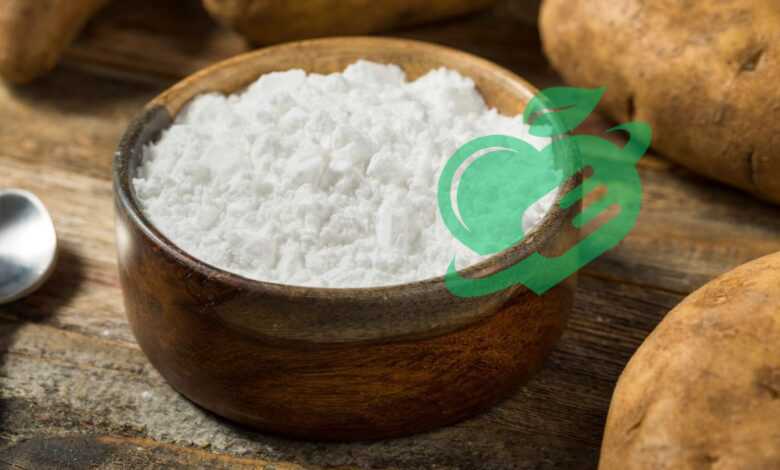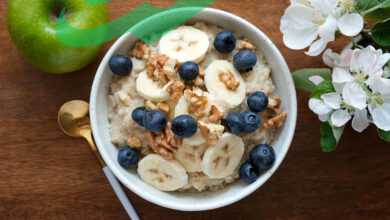Unlock the Power of Potato Starch for a Healthier Life

Overview of Potato Starch
Potato starch is a fine, white powder extracted from the tubers of the potato plant. Known for its versatility, this natural carbohydrate boasts a range of culinary and health benefits that have made it a popular ingredient in kitchens around the world. Potato is particularly valued for its thickening properties, which can elevate sauces, soups, and baked goods while providing a gluten-free alternative for those with dietary restrictions. With the increasing interest in healthier cooking options, potatoes are gaining momentum. It’s worth noting that while many might associate starch with being a mere filler, potato offers much more than just a textural component to dishes.
Benefits of Potato Starch for Health
Incorporating potato starch into your diet can provide numerous health benefits that might surprise you. Some of these include:
- Improved Digestive Health: Potato starch is a resistant starch, which means it resists digestion in the small intestine, reaching the colon where it acts as a prebiotic. This supports gut health by promoting beneficial bacteria.
- Blood Sugar Regulation: Research indicates that potato starch could assist in lowering glycemic responses after meals, making it a safer carbohydrate choice for individuals managing blood sugar levels.
- Weight Management: Due to its ability to create a feeling of fullness, incorporating potatoes into meals can help curb overeating. This can be particularly useful for those looking to manage their weight effectively.
- Nutritional Value: Beyond its functional properties, potato starch contains essential micronutrients, making it a valuable addition to any diet.
In sum, while potatoes may not be widely discussed, their potential health benefits and versatility in cooking make them a worthwhile ingredient to explore. As we dive deeper into the nutritional aspects and cooking tips, you’ll discover why it deserves a place in your pantry.
Read also: Top 10 High Phosphorus Foods to Boost Your Health.

Nutritional Value of Potato Starch
Understanding the nutritional value of potato starch begins with examining its macronutrient profile. Primarily composed of carbohydrates, potato serves as a significant energy source:
- Carbohydrates: Potato starch is predominantly made up of carbohydrates, accounting for about 85-90% of its total weight. This high carbohydrate content makes it an excellent source of quick energy.
- Protein: Interestingly, potato starch contains minimal protein, typically around 0.5%. This positions it more as an energy source than a protein supplement in your diet.
- Fat: Potato starch is virtually fat-free, which is beneficial for those looking to reduce their fat intake.
These macronutrients contribute to potato suitability for various dietary needs, especially for those following gluten-free or low-fat recipes. Cooking with potatoes can help create hearty dishes without excessive calories from fats.
Micronutrients in Potato Starch
While potato starch is not typically highlighted for its micronutrient content, it does provide valuable vitamins and minerals. Here’s a breakdown of the key micronutrients found in potato starch:
- Potassium: Vital for heart health and maintaining blood pressure, potato naturally contains potassium, which can contribute to daily intake.
- Magnesium: This mineral plays a role in numerous bodily functions, including muscle and nerve function, though it is present in smaller amounts.
- Vitamin B6: Essential for brain health and mood regulation, potato starch provides a slight quantity of Vitamin B6, supporting overall wellness.
Though its focus lies mainly on carbohydrates, including potato starch in your diet can enrich your meals without complicating your nutritional goals. It’s a simple ingredient that can elevate your dishes while offering these micronutrient benefits. As we move forward, we’ll discuss the exciting health benefits of consuming potatoes, revealing why they may be worth featuring in your regular meals.
Read also: 5 very special masks for oily skin

Health Benefits of Potato Starch Consumption
One of the standout benefits of consuming potato starch is its positive impact on digestive health. As a resistant starch, it isn’t fully digested in the small intestine, which allows it to reach the colon intact.
- Prebiotic Effect: This means that potato acts as a food source for beneficial gut bacteria, promoting a healthy microbiome. A well-balanced gut can lead to improved digestion and better nutrient absorption.
- Regularity: Regular consumption can help prevent constipation and promote regular bowel movements. Many people have shared how adding potato starch to their diet has resolved digestive discomfort and enhanced their overall gut health.
Blood Sugar Regulation
Maintaining stable blood sugar levels is essential for overall health, and potatoes may play a role in this aspect as well. Research suggests that resistant starch can help lower glycemic responses after meals.
- A Slower Release of Glucose: When you consume meals with potato starch, the digestion process is slowed down, resulting in a more gradual release of glucose into the bloodstream.
- Improvement for Diabetics: This can be particularly beneficial for individuals with diabetes or those looking to manage their blood sugar levels more effectively. As a result, potato helps in creating a balanced meal that maintains energy without the sugar spikes.
Weight Management
For those striving to manage their weight, potato starch can be a handy ally in the kitchen. Its unique properties can assist in controlling hunger:
- Feeling Full: Integrating potatoes into meals can increase satiety, keeping you feeling fuller for longer. I recall adding potato starch to my smoothies, and it dramatically calmed my hunger until lunchtime.
- Low-Calorie Option: For anyone seeking to cut calories without sacrificing flavor, potato is low-calorie, making them a guilt-free option that can enhance various dishes.
Incorporating potato starch into your diet not only adds versatility but also supports essential areas of health, giving you solid reasons to embrace it in your cooking. Up next, we’ll explore how to effectively cook with potatoes, unlocking their culinary potential.
Read also: Protein diet: How much do you lose weight per week?

Cooking with Potato Starch
Potato starch is not just a health powerhouse; it’s also a versatile ingredient that can elevate the culinary experience. With its unique properties, it serves a variety of purposes in the kitchen:
- Thickening Agent: One of the most popular uses of potato starch is as a thickening agent for soups, sauces, and gravies. Because it thickens quickly, it can give your dishes a luscious texture without overpowering the flavor.
- Baking Ingredient: When used in baking, potato starch can help create a tender texture in cakes and cookies. It’s especially useful for gluten-free baking, allowing you to achieve that desirable lightness.
- Coating and Frying: Potato starch can also be used as a crispy coating for frying proteins or vegetables. This corn starch alternative locks in moisture and gives an irresistible crunch to your fried delights.
Tips for Incorporating Potato Starch into Recipes
To get the most out of this ingredient, keep these practical tips for incorporating potato starch into your meals:
- Mix with Cold Water: When using potato starch as a thickener, always mix it with a bit of cold water or broth to form a slurry before adding it to hot liquids. This prevents clumping and ensures a smooth texture.
- Use sparingly: A little goes a long way! Start with 1 tablespoon of potato starch for each cup of liquid you want to thicken and adjust as needed.
- Experiment with Ratios: If you’re using potatoes in baking, consider replacing up to 25% of your flour with potatoes for an improved texture. You might discover new flavor profiles and textures that you love.
- Add it to smoothies: For a dose of fiber, try adding a tablespoon of potato starch to your morning smoothie. It blends well, thickens the texture, and doesn’t significantly alter the flavor.

Potential Risks and Considerations
While potato starch is generally safe for most individuals, it’s important to be aware of potential allergies and sensitivities. Although rare, some people may have adverse reactions to potatoes or potato-derived products. Here are a few points to consider:
- Allergic Reactions: Symptoms can vary from skin rashes to gastrointestinal distress. Those with a known potato allergy should avoid potato starch altogether.
- Cross-Contamination: If you have a severe allergy, be cautious about cross-contamination. Products processed in facilities that handle gluten or other allergens may pose risks. Always read labels carefully to ensure the product is safe for your use.
In my personal experience, a friend discovered they were sensitive to nightshade vegetables, which include potatoes. They had to eliminate potato products, including potatoes, from their diet. It’s essential to listen to your body and consult with a healthcare professional if you suspect any food sensitivities.
Moderation in Consumption
Despite its health benefits, moderation is key when adding potato starch to your diet. Here’s why:
- Caloric Density: While potato starch itself is low in calories, it is primarily a carbohydrate source. Consuming large amounts can lead to an excess of carbohydrates that might disrupt your nutritional balance.
- Digestive Effects: For some individuals, consuming too much resistant starch can lead to digestive discomfort, such as bloating or gas. Starting with smaller amounts and gradually increasing your intake can help your body adjust.
As a rule of thumb, consider incorporating potato starch as a part of a balanced diet. For example, mix it with a variety of other healthy ingredients to create satisfying meals that provide a wealth of nutrients without the downside of excess starch. By remaining mindful of allergies and consumption levels, you can enjoy the fantastic qualities of potatoes while minimizing potential risks. After this valuable insight, we’ll take a closer look at the research and studies surrounding potatoes and their health effects, revealing the science behind their benefits.
Read also: Choosing the Best Diet for Enhancing Brain Health

Research and Studies on Potato Starch
The health benefits of potatoes have caught the attention of researchers, leading to various scientific studies exploring their effects on human health. One significant area of focus is the impact of resistant starch on digestive health.
- Gut Health: Studies have shown that resistant starch, like that found in potatoes, acts as a prebiotic, promoting the growth of beneficial gut bacteria. This can lead to improved digestive function and may even enhance overall immune response.
- Blood Sugar Control: Research indicates that consuming resistant starch may improve insulin sensitivity and lower post-meal blood sugar spikes. A study published in the “American Journal of Clinical Nutrition” found that participants who included resistant starch in their diets experienced more stable glucose levels, which is beneficial for those with diabetes or metabolic syndrome.
- Weight Management: Clinical studies have also looked at how resistant starch can aid in weight management by increasing feelings of fullness and reducing overall calorie intake.
These findings provide a solid foundation for the health claims surrounding potato starch, reinforcing its role as an important dietary component.
Current Trends in Potato Starch Research
As scientists continue to uncover the various benefits of potato starch, exciting trends are emerging in the research landscape. Here are a few noteworthy developments:
- Functional Foods: There’s a growing interest in utilizing potato starch to create functional foods that enhance gut health and metabolic function. Food technologists are experimenting with incorporating potatoes into snacks and processed foods to boost nutritional profiles.
- Glycemic Index Studies: Ongoing research is examining how potatoes and their derived products can lower the glycemic index of foods, which is crucial for diabetes management and weight control.
- Sustainable Practices: With sustainability on the rise, researchers are also exploring how potato starch can be utilized in biodegradable packaging, reducing environmental impact without compromising functionality.
In sharing these insights, it’s clear that starch is not just a kitchen staple; it’s becoming an essential ingredient in health-focused food innovation. Moving forward, we’ll discuss how to effectively incorporate starch into a balanced diet, making the most of its advantages while enjoying it to the fullest.
Read also: Discover the Benefits of Vitamin A for Shiny, Healthy Hair

Incorporating Potato Starch into a Balanced Diet
As we consider how to make potato starch a part of a balanced diet, it’s important to focus on moderation and diversity. Here are some dietary recommendations to effectively incorporate this versatile ingredient:
- Serving Size: Aim for about 1 to 2 tablespoons of potato starch per meal. This amount is sufficient to enjoy its health benefits without overwhelming your diet with excess carbohydrates.
- Balance with Other Foods: Combine potato starch with a variety of whole foods, such as lean proteins, healthy fats, and an array of fruits and vegetables. The goal is to create balanced meals that provide vitamins, minerals, and other essential nutrients.
- Listen to Your Body: If you are new to potato starch, gradually introduce it into your meals to see how your body reacts. This is especially relevant for those sensitive to resistant starch, as it may cause digestive discomfort if introduced too quickly.
In my journey, adding potato starch to meals helped me notice improved fullness after lunchtime, allowing me better control of my snacking habits.
Practical Tips for Using Potato Starch in Cooking
To make the process of cooking with potato starch as seamless as possible, keep these practical tips in mind:
- Versatile Thickener: To use potato starch as a thickener, create a slurry by mixing it with cold water before adding it to hot liquids. This simple step will eliminate clumps and ensure a smooth texture in your sauces or soups.
- Baking Substitutions: When baking, try substituting up to 25% of your all-purpose flour with potato starch. This not only enhances texture but also helps keep your baked goods moist—a trick I discovered while experimenting with a family recipe!
- Creative Addition: Add potato starch to smoothies for added thickness and a fiber boost, enhancing the nutritional content without altering the flavor significantly.
By following these recommendations and tips, integrating potato starch into your meals can be both easy and enjoyable. With a newfound appreciation for this ingredient, you’ll be well-equipped to get the most out of potatoes, paving the way for a healthier, balanced diet. As we wrap up, let’s reflect on the key health benefits of potatoes and consider final thoughts on their use in your daily life.

Recap of Health Benefits
As we draw our discussion to a close, it’s clear that potato starch is a remarkable ingredient that offers numerous health benefits deserving of attention. Here’s a quick recap of some of its key advantages:
- Digestive Health: Acting as a resistant starch, potato starch supports gut health by promoting beneficial bacteria in the microbiome. This can lead to enhanced digestion and overall gastrointestinal wellness.
- Blood Sugar Regulation: Research has indicated that consuming potatoes can help stabilize blood sugar levels. Its ability to reduce post-meal glucose spikes makes it a valuable addition to the diets of those managing diabetes.
- Weight Management: With its satiating properties, potato starch can help curb hunger and reduce calorie intake, supporting effective weight management. I’ve found that incorporating it into my meals has kept me feeling fuller and satisfied, allowing me to avoid unnecessary snacking.
These benefits illustrate that potato starch is not only a practical cooking ingredient but also a powerful ally in promoting overall health.
Final Thoughts and Recommendations
Incorporating potato starch into your diet can be a flavorful and health-enhancing choice. Here are some final thoughts and recommendations to maximize your experience:
- Experiment in the Kitchen: Don’t hesitate to try potato starch in various recipes. From thickening soups to baking delicious treats, its versatility can lead to exciting culinary discoveries.
- Stay Informed: As potato research continues to evolve, keep yourself updated on new findings. This knowledge will help you make informed choices about your diet.
- Listen to Your Body: As with any dietary change, it’s crucial to pay attention to how your body responds. Start with small amounts and adapt based on your individual needs.
Frequently asked questions
Is potato starch the same as cornstarch?
Potato starch has a lower gelatinization temperature compared to cornstarch, allowing it to thicken liquids more rapidly when heated. If cornstarch is not cooked thoroughly, it can result in a residual starchy flavor, while potato starch provides sauces with a smoother and shinier texture. 1
Is potato starch just potato flour?
In brief: No. Potato starch is a refined starch obtained from potatoes, whereas potato flour is produced by cooking, drying, and grinding whole peeled potatoes into a fine, pale powder. Consequently, potato flour has fiber, protein, and, importantly, a unique potato taste. 2
What can replace potato starch?
9 Great Substitutes for Potato Starch
- Cornstarch is commonly used as a thickening agent, an anticlumping ingredient, and a key component in gluten-free baking. It serves as an excellent alternative to potato starch when you need a quick solution.
- Tapioca starch.
- Arrowroot powder.
- Rice flour.
- Mochiko flour.
- Wheat flour.
- Potato flour.
- Coconut flour.
How to make potato starch?
To produce potato starch, raw potatoes are crushed to release the starch grains from the broken cells. The starch is subsequently purified and allowed to dry. Once dried, it takes on a white, powdery texture similar to flour. 3
How much coconut flour to replace potato starch?
Coconut flour has a distinctive coconut flavor and a slight sweetness, setting it apart from potato starch. This makes it ideal for use in baking and desserts. Begin by substituting it at a ratio of 1:0.8 and adjust the amount of liquid as necessary. 4
Can I use flour instead of starch?
In contrast to cornstarch, wheat flour has protein and fiber in addition to starch. This means you can replace cornstarch with flour, but you’ll need a larger quantity to achieve the same result. Typically, it’s advised to use double the amount of white flour compared to cornstarch when thickening. 5
Can baking powder replace starch?
Baking powder can be used instead of baking soda in certain recipes; however, it lacks the thickening ability of cornstarch and should not be used as a replacement for it. The main characteristic of baking powder is its capacity to create a light and fluffy texture in baked items. 6
What is the ratio of flour to potato starch?
The ratio isn’t exactly one-to-one. While potato flour primarily consists of starch, it contains other components as well, so you should use a bit less potato starch than the amount of flour (recommended ratio is ¾:1 for potato starch to potato flour). Additionally, there are more suitable alternatives for potato starch and flour that we will discuss below. 7
Your body is a mirror of what you eat, so make your food your source of strength and health. Choose with love and awareness what nourishes your body and soul, and be a friend of nature and its colors on your plate, because proper nutrition is the key to a life full of energy and wellness. Follow us constantly, as we strive to provide more useful articles and reliable information that make a difference in your daily life and help you achieve your health goals.
- bonappetit ((↩))
- seriouseats ((↩))
- medicalnewstoday ((↩))
- recipesandplaces ((↩))
- healthline ((↩))
- livestrong ((↩))
- allrecipes ((↩))



